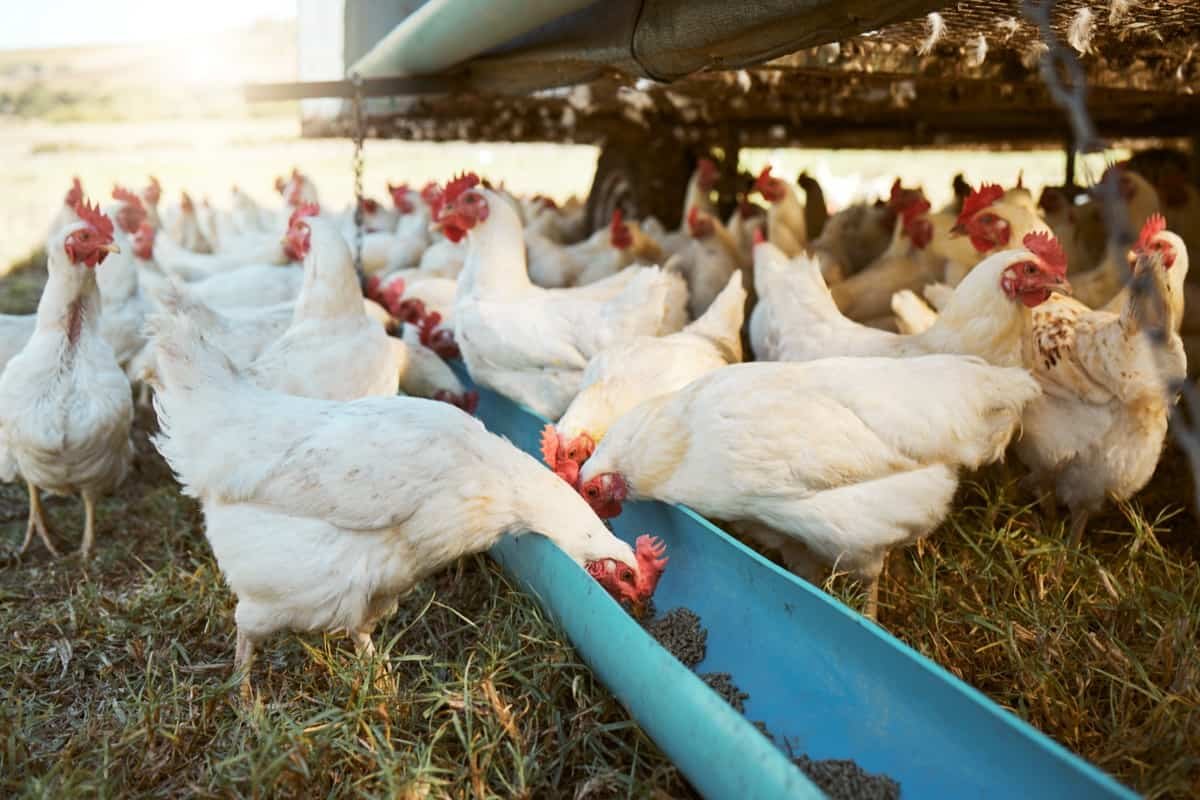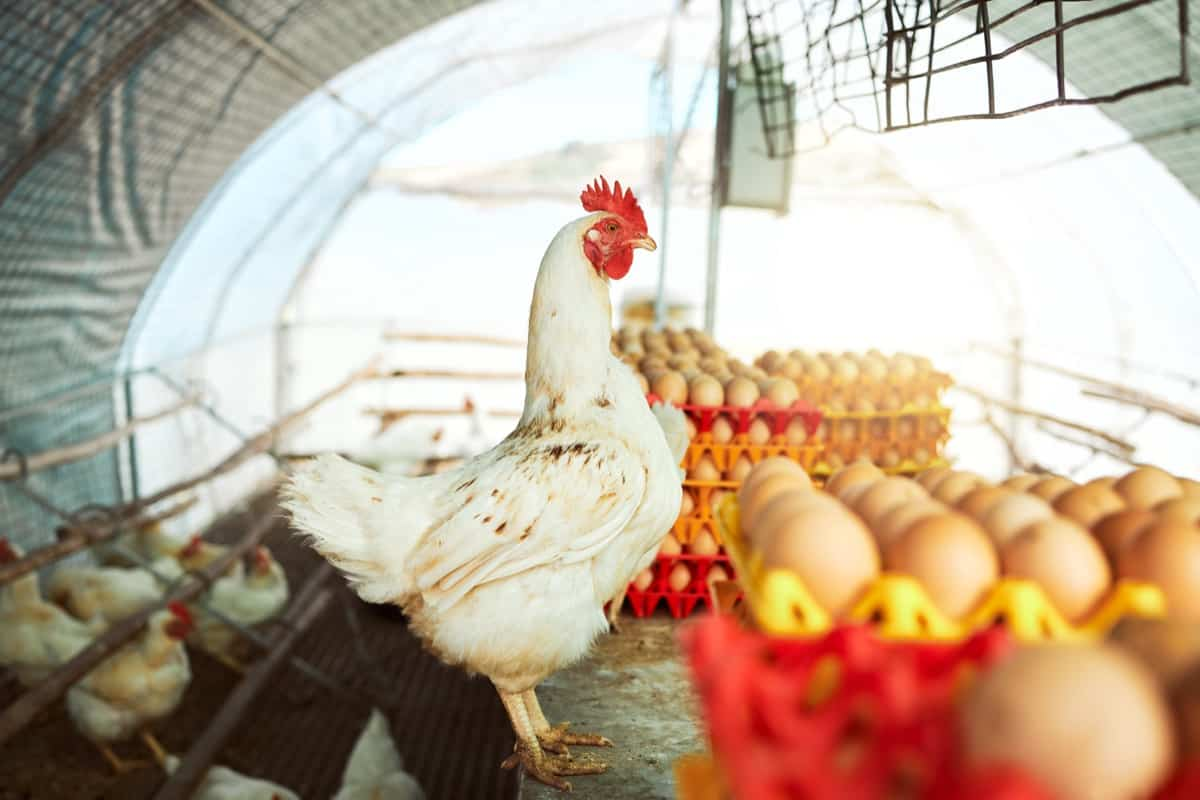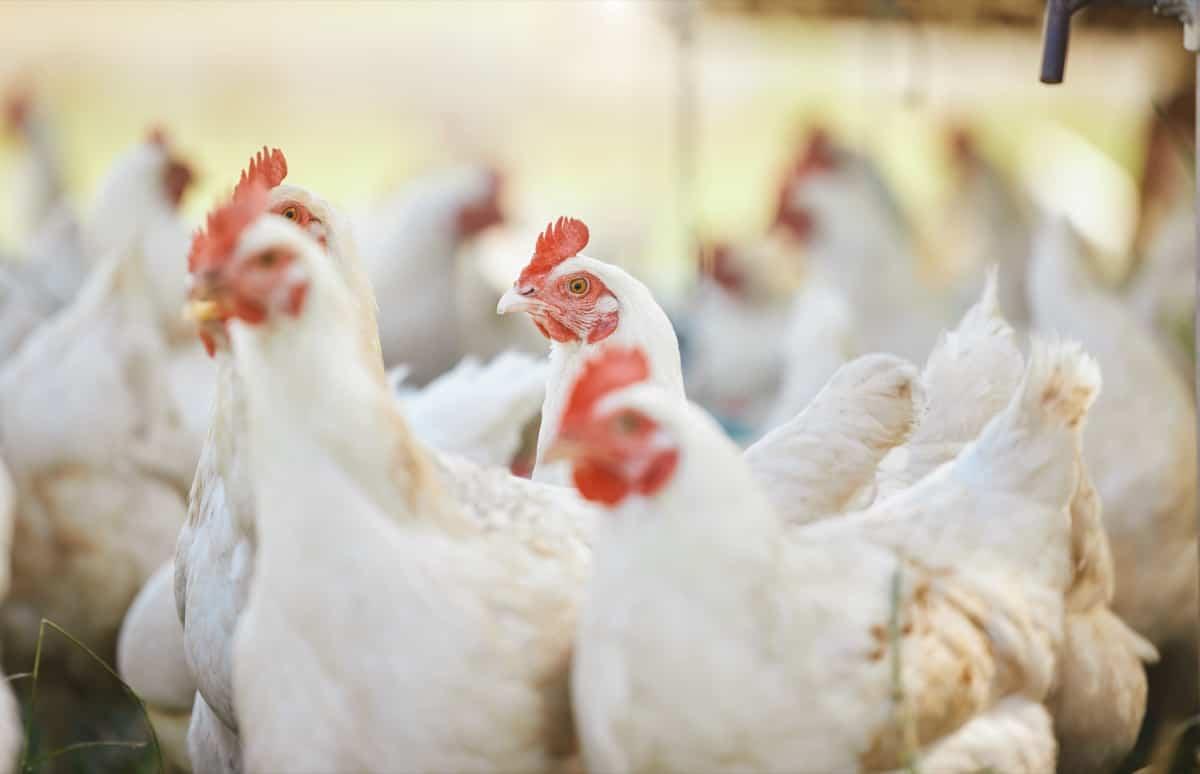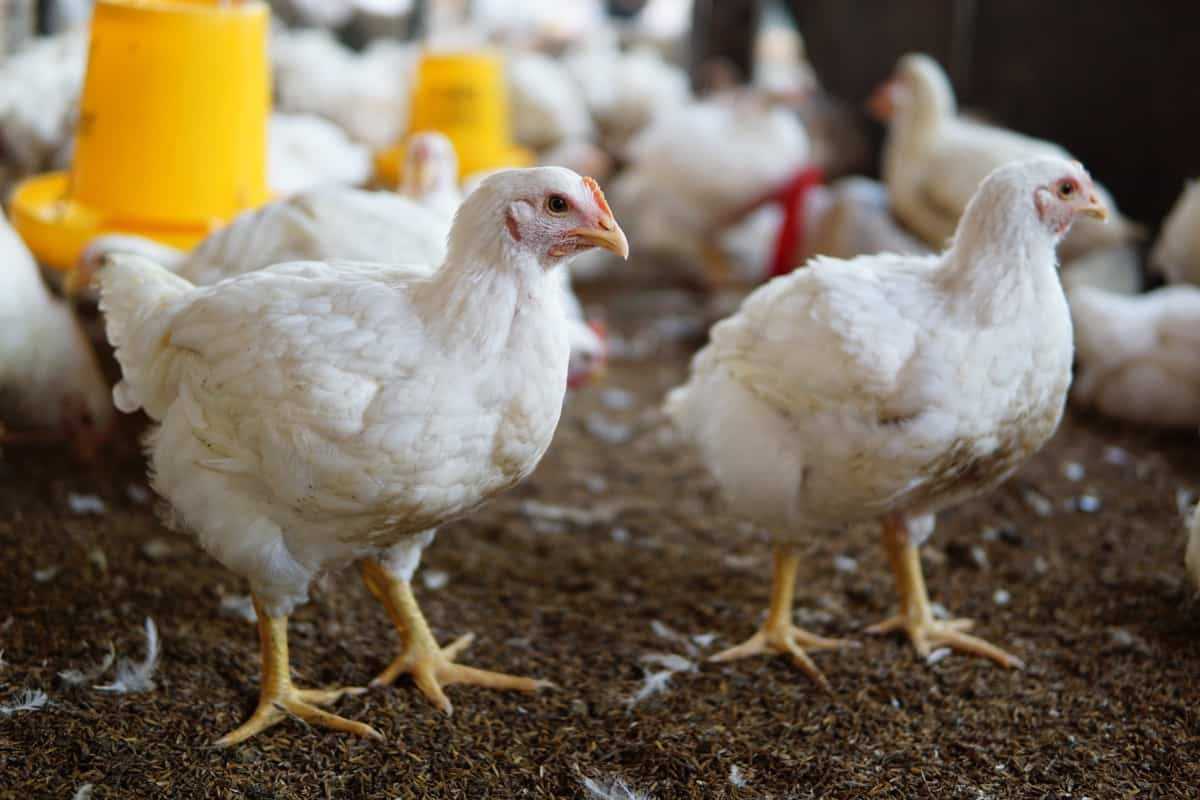Starting a small-scale poultry farm in Michigan involves a multi-step process that requires careful planning and consideration of various factors such as Michigan poultry processing laws, permits, and climatic conditions. If you’re considering poultry farming in Michigan, knowing the essential equipment and supplies, building a suitable coop, obtaining necessary permits and licenses, and understanding the feeding and nutrition requirements are crucial.

You must also be well-versed with the requirements to start a poultry farm in Michigan, which include complying with the Michigan poultry permit regulations. Selecting the right chicken breeds suited for the Michigan climate and market demand is also vital to ensure the success of your small-scale poultry farm in Michigan.
9 Steps to Start Poultry Farming in Michigan
Essential Equipment and Supplies for Michigan Poultry Farming
In the venture of poultry farming in Michigan, having the essential equipment and supplies is the foundational step. From feeders, waterers, and bedding to lighting and ventilation systems, every element plays a significant role in the health and productivity of the poultry. Investing in quality feeders and waterers ensures that the birds have constant access to fresh food and water, which is crucial for their growth.
Suitable bedding materials such as straw or wood shavings are necessary to maintain cleanliness and comfort in the coop. Adequate lighting is essential for encouraging eating, which promotes growth in poultry, while proper ventilation ensures a fresh air supply, keeping the environment conducive for the birds. Being well-equipped not only aids in adhering to Michigan poultry processing laws but also fosters a healthy atmosphere for the poultry.
Building a Suitable Chicken Coop for Michigan Weather Conditions
Building a coop that can withstand its diverse weather conditions is vital in establishing poultry farming in Michigan. The coop should be designed to be warm and insulated during the cold winters and well-ventilated during the warmer months. It is crucial for protecting the birds from harsh weather elements, predators, and diseases.
Including proper insulation and a reliable heating system ensures that the birds are kept warm during cold months, adhering to the requirements to start a poultry farm in Michigan. Also, ensure that the coop design allows easy cleaning and maintenance, promoting a clean and healthy environment for the poultry.
Obtaining Necessary Permits and Licenses for Poultry Farming in Michigan
When planning for poultry farming in Michigan, obtaining the necessary permits and licenses is necessary. Familiarize yourself with and adhere to the Michigan poultry permit regulations and other legal requirements. These permits and licenses ensure that your farm complies with health, safety, and environmental standards. It involves getting approval from local and state authorities to ensure your farming practices align with the Michigan poultry processing laws. This legal foundation is crucial in establishing a legitimate and successful small-scale poultry farm in Michigan.
Selecting the Right Chicken Breeds for Michigan Climate and Market Demand
Selecting suitable chicken breeds is fundamental for poultry farming in Michigan. The choice should consider the adaptability of the chickens to Michigan’s climate and the market demand. Opt for hardy and resilient breeds to the local weather conditions, ensuring that they thrive and are productive. Understanding the market demand for various poultry products, such as eggs or meat, will also guide your choice of breeds. This selection is pivotal in meeting the requirements to start a poultry farm in Michigan and ensuring its sustainability and profitability.
In case you missed it: 10 Most Docile Chicken Breeds: Easy to Handle and Manage in Your Backyard Poultry

Feeding and Nutrition Requirements for Michigan Poultry Farming
Proper feeding and nutrition are paramount for birds’ health and productivity in Michigan’s poultry farming. A balanced diet rich in essential nutrients like proteins, vitamins, and minerals ensures the growth and vitality of the poultry. Ensure that the feeds are fresh and of good quality, meeting the dietary needs of the different stages of poultry life. Understanding and implementing proper feeding practices are essential in compliance with Michigan poultry processing laws, promoting the overall success of your small-scale poultry farm in Michigan.
Implementing Biosecurity Measures to Prevent Disease Outbreaks in Michigan Poultry Farms
Biosecurity is a critical aspect of ensuring the success of poultry farming in Michigan. Implementing strong biosecurity measures helps prevent the introduction and spread of diseases within the poultry farm. Ensuring the farm is secured from unauthorized access, pests, and wild birds is essential.
Regular cleaning and disinfection of the equipment, facilities, and the entire farm help maintain a healthy environment. It’s also important to continuously monitor the birds’ health and quarantine any sick poultry to prevent the spread of diseases. By doing this, you align with the Michigan poultry processing laws and contribute to maintaining a healthy and productive small-scale farm in Michigan.
Managing Waste and Implementing Sustainable Practices in Michigan Poultry Farming
Waste management is vital in poultry farming in Michigan to maintain a clean and sustainable environment. Proper disposal of poultry waste, like feathers, bedding, and unused feed, is necessary to prevent odor, pests, and possible spread of diseases. Implementing sustainable practices such as composting can turn waste into valuable resources for the farm.
These practices ensure compliance with Michigan poultry processing laws and contribute to the community’s environmental sustainability. Understanding and following the legal requirements regarding waste management is essential to run a successful and responsible poultry farm in Michigan.
In case you missed it: Free-Range Egg Production Business: A Profitable Business for Rural Poultry Farmers

Marketing and Selling Your Poultry Products in Michigan
The marketing aspect is crucial for the sustainability of poultry farming in Michigan. Building relationships with local markets, grocery stores, and restaurants can be beneficial for selling your poultry products. Developing an effective marketing strategy that includes branding, pricing, and promotion helps reach potential customers and create a market presence.
Online marketing through social media platforms and a business website can also be powerful tools to promote your products to a broader audience. All these strategies should be aligned with Michigan poultry processing laws to ensure the business runs smoothly and ethically.
Ensuring Animal Welfare and Ethical Practices in Michigan Poultry Farming
Ensuring animal welfare is a core principle that should be upheld in poultry farming in Michigan. Maintaining ethical practices such as adequate space, proper nutrition, and timely medical care ensures the birds’ well-being and productivity. Treating the poultry humanely and avoiding any practices that might cause unnecessary harm or stress to the animals is essential. Adhering to ethical practices is a moral responsibility and a requirement under Michigan poultry processing laws. It helps build a good reputation and trust with consumers and other stakeholders in the poultry industry.
Cost to Start Poultry Farming in Michigan
The cost to start poultry farming in Michigan can vary based on various factors such as the size of the farm, location, and the type of poultry being raised. Starting a small-scale poultry farm might cost between $10,000 to $15,000. This cost includes purchasing or renting land, building or setting up the coop, buying essential equipment and supplies, and initial operating costs such as purchasing chicks and feeds. The budget must also consider ongoing expenses like feed, utilities, and veterinary care. Having a clear financial plan is essential to manage costs effectively and ensure the profitability and sustainability of the poultry farm in Michigan.
In case you missed it: The Perfect Poultry Pair: Raising Turkeys and Chickens Together

Conclusion
Establishing a successful small-scale poultry farm in Michigan requires meticulous planning, adherence to local regulations, and implementation of effective farming practices. Ensuring proper equipment, biosecurity, animal welfare, and a strategic marketing approach are crucial components for a thriving and sustainable poultry farming business in Michigan.
- Feed Your Flock for Less: Top 10 Tips to Save on Chicken Feed
- Ultimate Guide to Ossabaw Island Hog: Breeding, Raising, Diet, and Care
- Hatching Answers: The Top 10 Reasons Your Chickens Aren’t Laying Eggs
- Eggs and Economics: Breaking Down the Cost of Raising Backyard Chickens
- Defend Your Greens: Proven Methods to Keep Iguanas Out of Your Garden
- Ultimate Guide to Cinnamon Queen Chicken: A Comprehensive Guide for Beginners
- Ultimate Guide to California Tan Chicken: Breeding, Raising, Diet, Egg-Production and Care
- Ultimate Guide to Marsh Daisy Chicken: Breeding, Raising, Diet, and Care
- 10 Types of Chicken Farming Businesses You Can Start for Profits